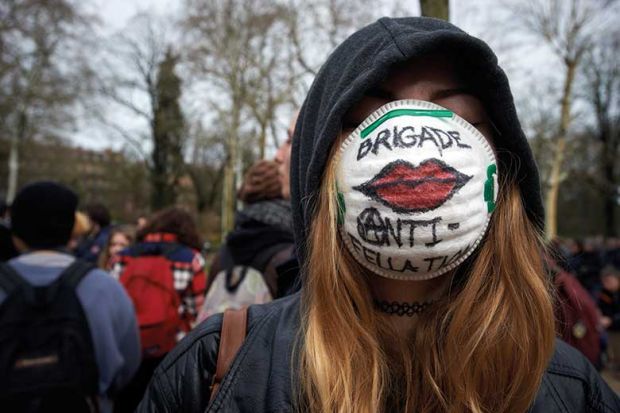If the #MeToo movement has taught us anything, it is that if we want to change the justice system to make it fairer to and less dismissive of women, that legal reform effort must be informed by a knowledge of female sexuality gained by listening to the experiences of women.
Universities – the places where the bravest intellectual adventures occur, undertaken by students and academics alike – must be a part of this reform. Vanguard research in relation to sexuality is urgently required if we are collectively to revisit ethical standards for sexual relationships and to work towards reforming laws on consent in response to #MeToo.
Higher education institutions have a crucial role in enabling law and sexuality researchers to produce this work by ensuring that the necessary financial resources and institutional support are provided.
Academics, particularly female scholars, who are doing this research must also be supported by an institutional culture that clearly values their work for its societal and intellectual benefits.
The reality, though, is that sexuality research is not a priority and is explicitly and implicitly discouraged by a commercially centred and prudish university culture that fears female sexuality.
To be sure, we can sympathise with universities, which are in a more precarious state than ever. Despite historically high numbers of people entering higher education, the market is far from secure. This has resulted in a consumer-based culture in which good National Student Survey results are prioritised above the genuine learning experience of students.
On the other side, in relation to academics who deliver this “service”, radical research is pushed aside in favour of enabling the university to meet its requirements under the research excellence framework.
The metrics that measure achievement in the REF are not ones that necessarily prioritise the innovative character of research, nor do they lead to a supportive environment for researchers who are doing what institutions might see as “risky” sexuality work.
It is still the case that sexuality work is perceived as “dirty” and produces anxiety in university management because of the risk it might pose to an institution’s reputation, as Janice Irvine found in her study of US universities.
Sexuality research might even point to a problem within the university itself, something an institution might try to silence, as Adam Hedgecoe found in relation to sex work among students at Kingston University.
Sexuality work is also an area that traditionally does not attract large grants from research councils, meaning that often universities do not consider it a priority area.
The problem runs deeper than this, though. Academia, like any workplace, can have problematic power dynamics. This is concerning when we realise that academics not only have a personal power, but an intellectual and philosophical power as well.
Philosophers and writers are people, too, and some of those people are powerful men, who, just like the powerful men called out by #MeToo, fear female sexuality and female sexual liberation.
This is something that I experienced as a sexuality researcher doing fieldwork. As I tell the story in my forthcoming book, the relationship that I had with one such “philosopher” was controlling, with perceived intellectual authority becoming synonymous with emotional power.
This tells us that the authority of philosophy over our thinking in sexuality should not be taken so seriously. Instead, we should focus on the experience of women, which must include those who are challenging the authority of conventional thinking.
Such regimes of thought underpin university values and feed into institutional practices. For example, my work also sparked fear in the university’s ethics committee. Although they eventually allowed my project, the questions they asked indicated a gendered fear for my personal safety in the field – would the same questions be asked of a man?
There was also a worry that my work might bring the university into disrepute. My “risk assessment” also focused on banal concerns about being hydrated on the flight to my research destination (from the UK to France) rather than a real conversation with me about risks in the field.
For sure, there is an institutional fear of female academics doing sexuality work, as I have personally experienced. But recognising this problem can be galvanising for universities. We can take energy from the increasing diversity of the student and staff body and use it to develop strategies for ensuring that the place of radical work on female sexuality is asserted and that diverse researchers are supported properly in their work.
If we are to ensure a just future for consent post #MeToo, we need to empower those who are taking risks to research sexuality.
Victoria Brooks is a lecturer in law at Westminster Law School, University of Westminster.
POSTSCRIPT:
Print headline: Back us to help #MeToo
Register to continue
Why register?
- Registration is free and only takes a moment
- Once registered, you can read 3 articles a month
- Sign up for our newsletter
Subscribe
Or subscribe for unlimited access to:
- Unlimited access to news, views, insights & reviews
- Digital editions
- Digital access to THE’s university and college rankings analysis
Already registered or a current subscriber? Login



